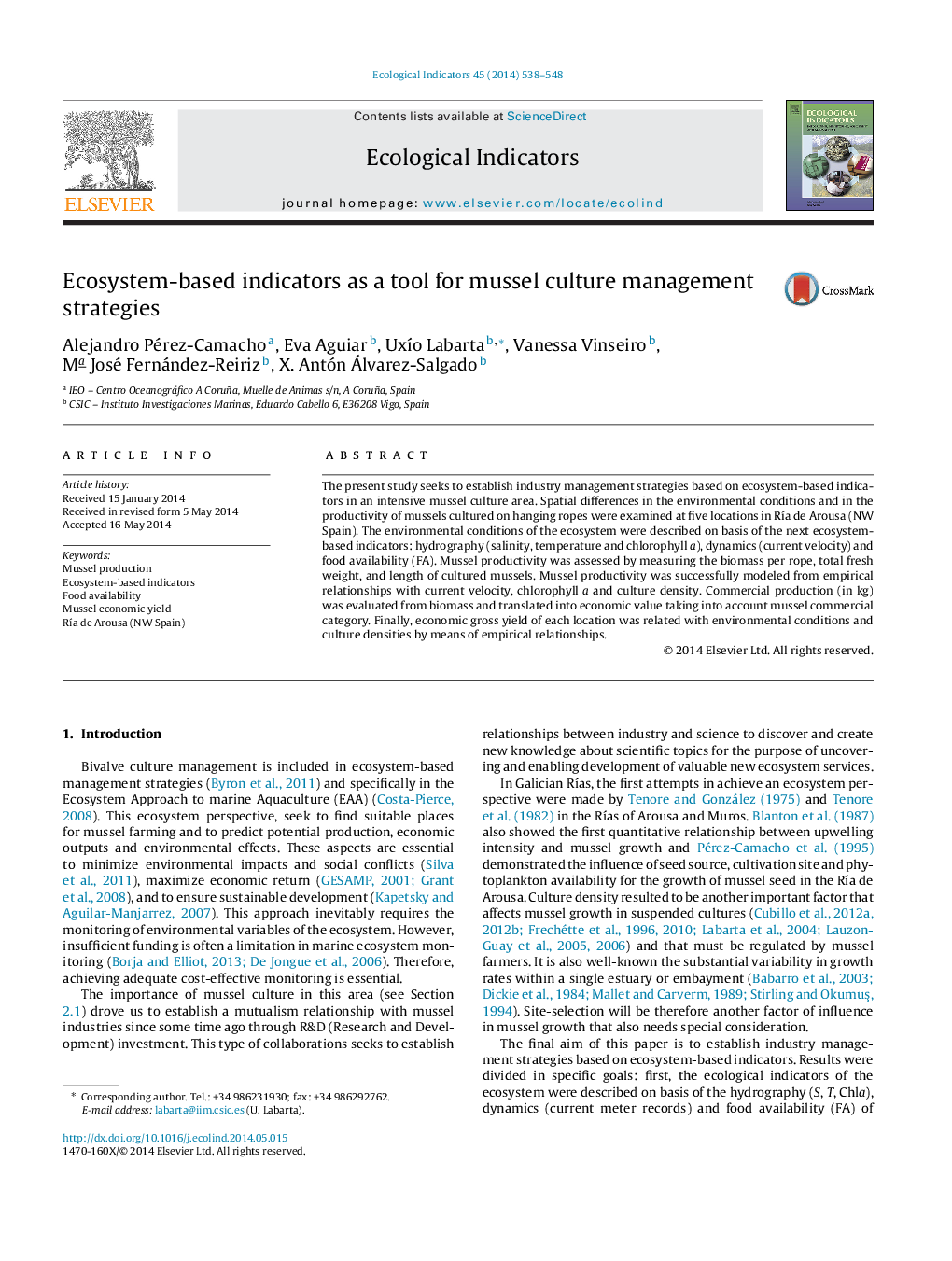| Article ID | Journal | Published Year | Pages | File Type |
|---|---|---|---|---|
| 4373095 | Ecological Indicators | 2014 | 11 Pages |
•Food availability is controlled by environmental factors.•Mussel production is assessed by ecological indicators.•Economic yield of each raft is evaluated by ecological indicators.•Culture density and location are key factors in mussel raft management.
The present study seeks to establish industry management strategies based on ecosystem-based indicators in an intensive mussel culture area. Spatial differences in the environmental conditions and in the productivity of mussels cultured on hanging ropes were examined at five locations in Ría de Arousa (NW Spain). The environmental conditions of the ecosystem were described on basis of the next ecosystem-based indicators: hydrography (salinity, temperature and chlorophyll a), dynamics (current velocity) and food availability (FA). Mussel productivity was assessed by measuring the biomass per rope, total fresh weight, and length of cultured mussels. Mussel productivity was successfully modeled from empirical relationships with current velocity, chlorophyll a and culture density. Commercial production (in kg) was evaluated from biomass and translated into economic value taking into account mussel commercial category. Finally, economic gross yield of each location was related with environmental conditions and culture densities by means of empirical relationships.
